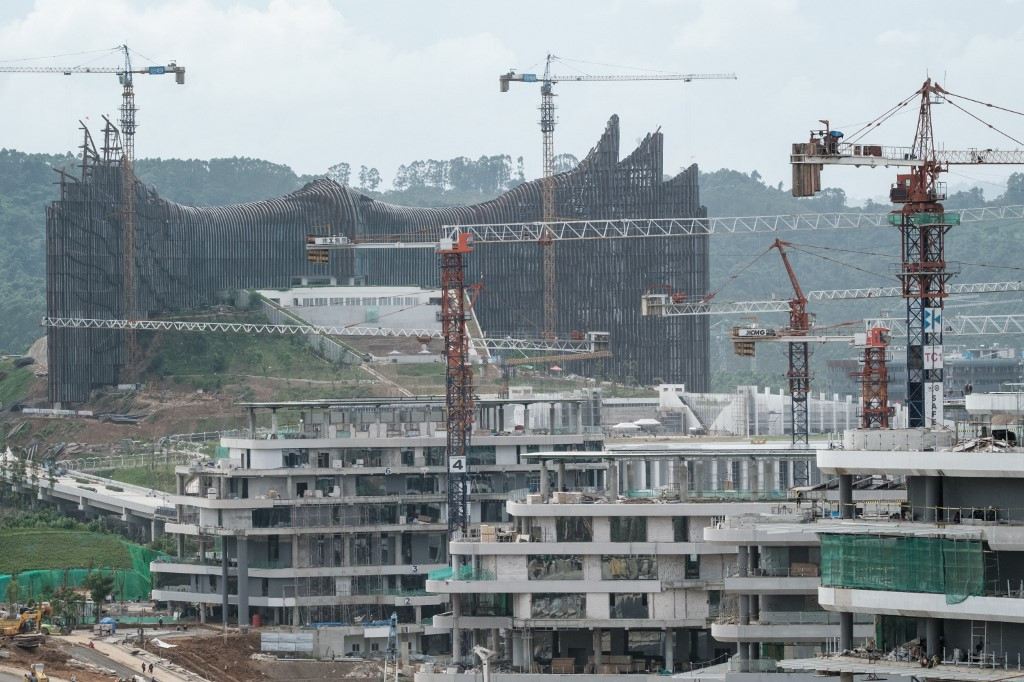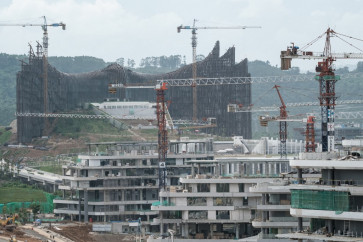Popular Reads
Top Results
Can't find what you're looking for?
View all search resultsPopular Reads
Top Results
Can't find what you're looking for?
View all search resultsWill Indonesia’s new capital Nusantara gain ground?
Relocating the nation's capital to Nusantara requires a holistic approach across the economic, political and social ecosystems that involves both domestic oversight and international resources, but it can be done.
Change text size
Gift Premium Articles
to Anyone
 Scaffolding and cranes stand on July 11, 2024 at the site of the new presidential palace under construction in Nusantara, North Penajam Paser, East Kalimantan, slated for inauguration as the nation's new capital during the 79th Independence Day celebrations on Aug. 17, 2024. (AFP/Yasuyoshi Chiba) (AFP/Yasuyoshi Chiba)
Scaffolding and cranes stand on July 11, 2024 at the site of the new presidential palace under construction in Nusantara, North Penajam Paser, East Kalimantan, slated for inauguration as the nation's new capital during the 79th Independence Day celebrations on Aug. 17, 2024. (AFP/Yasuyoshi Chiba) (AFP/Yasuyoshi Chiba)
O
ver the past seven decades, at least 16 capital cities have been relocated to decentralize governance, promote regional development and address infrastructure challenges, reflecting the evolving needs and aspirations of nations and the significant political, economic and cultural roles capital cities play in shaping national identity and a country’s trajectory.
Nusantara Capital City (IKN) in East Kalimantan aims to replace Jakarta, which has been grappling with overpopulation, traffic congestion and environmental pollution. Designed as a sustainable smart city, Nusantara is expected to boost the economy, employment and quality of life as it is completed in phases from 2024 to 2045.
The IKN development project emphasizes sustainability, foreign investors and robust infrastructure, but faces concerns about environmental, legal, governance and social issues. Scrutinized for discrepancies in its governance system, the IKN project has met with challenges including criticisms of governance failures, economic implications and funding constraints.
This article evaluates capital city relocation projects to gauge IKN's success and the factors influencing its timeline, considering both domestic and global political influences. We examined the factors influencing the success of relocation projects, utilizing the Kaplan-Meier survival curve to model the outcomes for the capital city relocation projects in 16 countries.
Our findings reveal a 75 percent chance of success within 50 years, 50 percent success within 30 years and 25 percent success within 20 years.
The results of our Cox regression analysis reveals that expanding monetary policy, low polarization and high autonomy of opposition parties with well-developed intergovernmental organization (IGO) membership and participation accelerate the success of a capital city relocation project.
Expanding monetary policy, involving lower interest rates and increased money supply, ensures adequate funding and boosts investor confidence, although overexpansion could lead to inflation and fiscal imbalances.


















